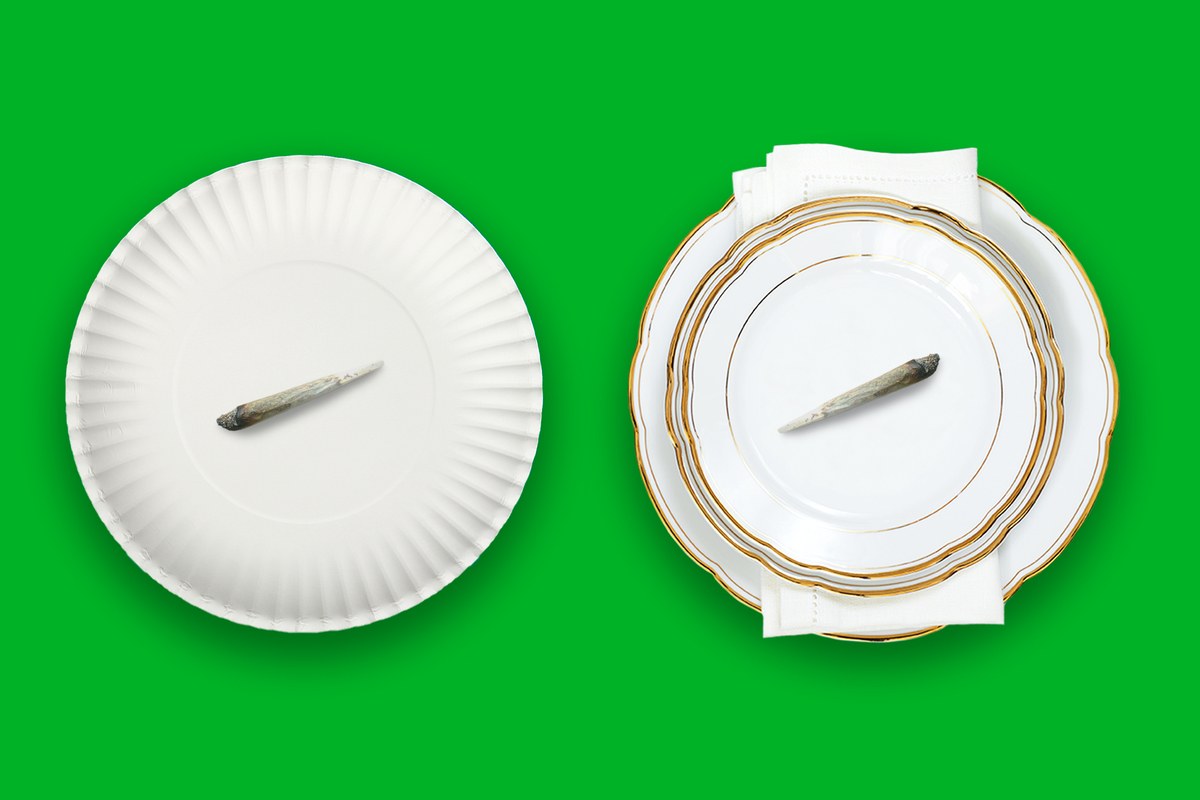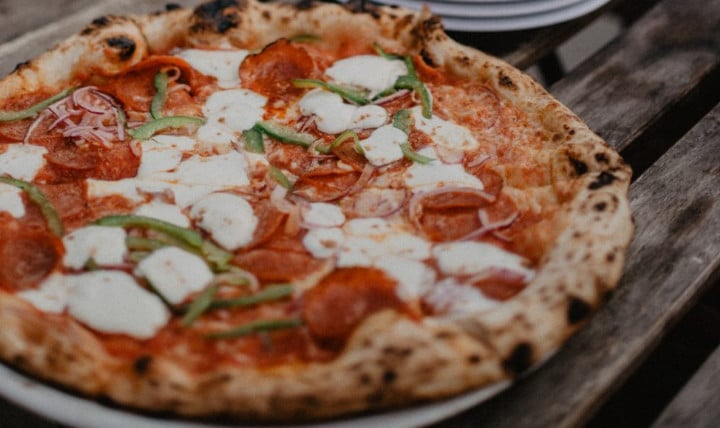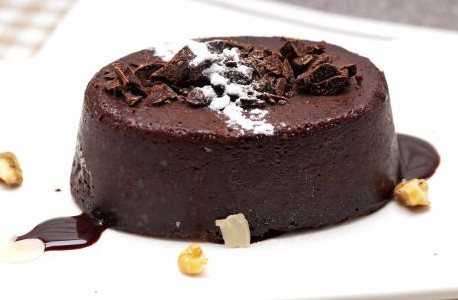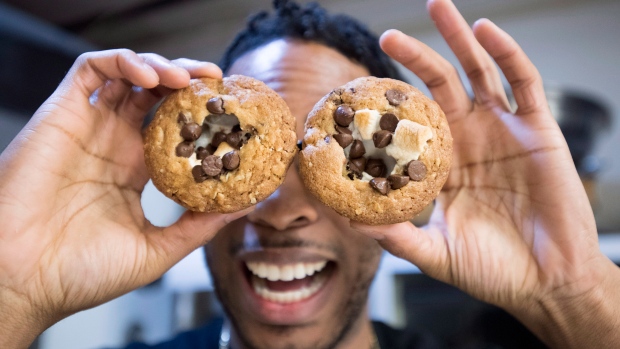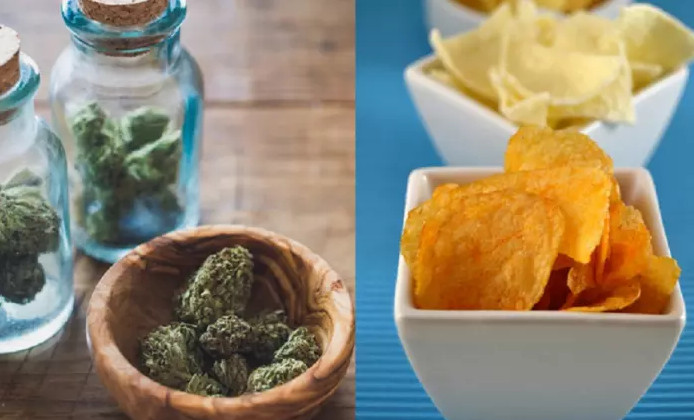As legalized weed booms and inequality in the industry persists, it’s on 420-friendly consumers to investigate what they’re eating (or smoking, or vaping, or dabbing).
We can all feel it: pretty soon, recreational weed is going to be legal across the country. At this point, 61% of Americans think legalization is a good idea, with the quickly-disappearing Silent Generation being the only ones whose approval is in the minority. In places where it’s legal, it’s become a booming industry: countless strains for every ailment and desire, a slew of wellness products, a candy store-like selection of edibles, and all the paraphernalia to smoke, vape, and dab out of.
The food world is a particular hotbed for weedification: The industry is rife with fawning profiles of mixologists experimenting with infusions, pastry chefs lacing marijuana into white chocolate with raspberry cream, and $200 cannabis-themed tasting menus. All auguring a future in which ordering a cannabis cocktail will be no different than ordering an alcoholic one. It’s almost enough to forget that, in 2016, there was more than one marijuana possession arrest every minute.
Like any other industry in a capitalist economy, the cannabis industry is plainly unfair. In many states where the substance is legal, those with past cannabis convictions can’t legally obtain a license to open a business, even though having a cannabis business was what got them arrested in the first place. And since black and brown people are more likely to be arrested for cannabis and fall into poverty, it means rich, white people are starting monopolies before everyone else can get their foot in the door. So, should we all wait until cannabis is legal and reparations have been paid before we start cooking with cannabis-infused single-origin olive oil? Or is there an ethical way to mix pot and delicious food?
To be honest, most weed stores freak me out. The last time I went into one, somewhere in Portland, I was greeted with warm smiles from the folks behind the counter. I was there with my partner, who gets panic attacks on planes and was looking for some edibles that could maybe serve as an alternative to Xanax. Soft music played and a fancy diffuser released perfume into the air. There were art magazines splayed on white tables, and pipes that looked more like miniature sculptures than anything you could smoke out of. It was, essentially, an Apple store. An employee suggested pomegranate-flavored gummies for our needs, and we walked away with a crisp paper bag with the store’s logo stamped on the front. I was the only non-white person there.
Racialized fear of weed is what got it criminalized in the first place. “Marijuana was scapegoated as prompting murder, rape, and mayhem among blacks in the South, Mexican Americans in the Southwest, and disfavored white immigrants from laboring classes,” wrote Steven W. Bender in The Colors of Cannabis. But if you’re white, hey, it’s just a youthful right of passage. Nothing about that Portland store was wrong, per se, but I got the distinct impression no one there had ever faced any risk for smoking. Whether buying cannabis in a store or on the street, they weren’t the ones who’d ever gotten in trouble, but the first in line to reap the benefits of legalization.
“I don’t necessarily have a problem with people making infused cocktails and selling them, because I want black people and brown people to be able to do that too,” says Amber Senter, Executive Director of Supernova Women, an organization founded to support women of color in the cannabis industry. “The problem that I have is that white people are coming in, very wealthy white men are coming in and basically kind of just trouncing out small business, and within that are black and brown communities in small business.”
Black and brown business owners are less likely to have access to things like generational wealth and real estate, which make starting a business much easier. And, if you’ve got a conviction in your past, that messes things up even more. “When you do get a cannabis conviction, when your area is over-policed, people tend to go to jail,” says Senter. “When you go to jail you lose your job. When you lose your job you fall into poverty, and it’s just this vicious cycle that happens. So, with that happening, these people don’t have access to rich friends and rich parents and rich grandparents and generational wealth that the other communities do.” So while small business owners are struggling to get their business off the ground, big businesses are establishing monopolies.
Part of Senter’s work is advocating for equity programs, which provide reparations and support for people with cannabis convictions who want to enter the cannabis business—you know, do the thing they were arrested for that people are now doing legally. Currently, a few cities like Oakland, San Francisco, LA, and the state of Massachusetts have all passed versions of equity programs, though according to Senter, they’re terribly funded. “Oakland’s equity program was funded by cannabis company applications and tax revenue and all that, but it was so small. It’s 3.4 million dollars. There are 600 equity applicants,” she said. “What’s that, five grand a piece? Who’s that going to help?”
It’s not like this sort of disparity in opportunity is unique to the cannabis industry. Consumers have been asked to carefully consider the sources and ramifications of their purchases since the economy was invented and they largely…haven’t. “Does the consumer have a responsibility?,” asks Senter. “Well, I mean, do consumers typically support black and brown businesses in any other industry? Sometimes they do, sometimes they don’t. You know? I’d say largely they don’t. So is it going to be any different in cannabis? I highly doubt it.”
As much as the cannabis industry could easily perpetuate the inequalities of the past, there are chefs who are dedicated to righting those wrongs, and providing a model for what a new industry could look like.
“I’ve personally been arrested several times on just minor possession charges,” says Ryan Bush, co-owner of the Cannaisseur Series, which hosts pop-up dinners around the Bay Area. “A lot of my youth was wasted just being stuck in the system over a lot of really petty stuff. And so, yeah, coming out to California, we almost felt like refugees in a sense to kind of get away from all that.” Bush and his fiancée, Chef Coreen Carroll, decided that what was missing in SF’s cannabis scene was a way to not only enjoy cannabis in new and innovative ways, but to connect consumers with the people who were making their product.
“We’re really all about showcasing the craft, small batch producers who just make really phenomenal products,” says Carroll. They’ve hosted events highlighting women owners, LGBTQ owners, and more, and by making consumers more aware of who is making their products, they hope they’ll become invested in supporting small business owners from diverse backgrounds, not just huge corporations. Bush and Carroll have also become active in helping influence the legislation for San Francisco’s equity programs. “What’s a fair way to bring equity to the industry and to show support to the communities who have been disproportionately affected by the drug war is not an easy conversation to have,” says Bush. But they’re hopeful that their colleagues all care enough to try. “I think maybe the cannabis industry is actually going to be the example for this next generation on how business should actually be done,” says Carroll.
Perhaps one of the biggest names in cannabis cooking is Andrea Drummer, a private chef and the creator of the Cannabis Entrepreneurial Dialogues program, sort of like TED talks but for pot. Drummer started her career as an anti-drug counselor, having grown up in a household that trusted the government narrative that cannabis was a dangerous substance. But after moving to California and meeting people who used it more recreationally, she realized her assumptions had been wrong.
As a black woman, Drummer already knew she was a rarity in the culinary world, and as she learned more about cannabis, she admits to being baffled by how quickly conversations about equity were being passed over. “Why are we still fighting for the release or pardon of people that have been incarcerated and directly affected by a plant that so many people are benefiting and profiting from? It just doesn’t make sense. I don’t get it,” she says. “So that’s a large part of my work, those are the things that I do and I’m motivated by, is to have these conversations. And to do something about it, not just have conversations.”
Aside from the CED talks, Drummer is partnering with a grow house that hires people who’ve had cannabis convictions, and she hopes to keep hiring former convicts in future projects. But more than anything, she wants to make sure no one has a chance to forget about the issues still at hand. “If you look at what the industry looks like, it doesn’t look like me. Both the cannabis and the culinary industry. So how do you get middle aged white men to give a shit about Black men incarcerated, or Latino men incarcerated for marijuana?”
According to Drummer, the way out is making people care about cannabis the way they care about food, and what better way than through the food itself? The feelings consumers have about making sure their food is organic and sourced from farms that treat workers well, about buying local—that needs to be translated into cannabis. “I think it’s a great time [for this conversation] because we are thinking about our food more cerebrally, and there is a great push to know where our food comes from and what’s in it, and who’s behind it,” says Drummer. “We have to think about that now as it relates to cannabis.”
A $200 cannabis dinner or a $20 CBD cocktail can be a source of more than just a buzz for the privileged few: It can be a source of change, whether it’s through chefs using products from independent growers, donating proceeds to equity programs, or helping diners become public advocates. On a consumer level, part of that change is ensuring you know where product is coming from—just as you might want to know what state your fresh corn is coming from, or whether it’s grown with GMOs, it’s time to start asking questions about what you’re putting in your hand-crafted ceramic bong. It takes more work than walking into a store and walking out with whatever you’re handed. But creating better, more equitable industries always does.
Credit: www.gq.com

